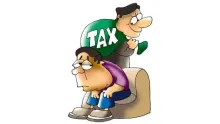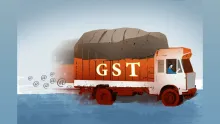Eternal, a prominent name in its segment, has come under regulatory scrutiny after tax authorities issued a Goods and Services Tax (GST) demand amounting to Rs 27.56 crore. The development introduces a new layer of financial and compliance pressure for the company, even as it continues to maintain a strong market presence. The demand reportedly stems from alleged discrepancies related to tax filings and input credit claims over a defined assessment period.









